
Getty Images / Anna Webber / Stringer
Best known as the guitarist for Jane’s Addiction, the Red Hot Chili Peppers, Panic Channel, Deconstruction and, well, himself, Dave Navarro has done his fair share of TV as well, not only as host of Ink Master, but also as a judge on Rock Star: INXS and Rock Star: Supernova.
Now, Navarro is the producer and subject of Mourning Son, a documentary that delves into his profound personal trauma (his mother’s ex-boyfriend murdered her and her sister when Navarro was 15; he was out of the house at the time). A self-proclaimed cinephile, Navarro shared his Five Favorite Films, and discussed the difficulty of sharing his most painful memories on camera.
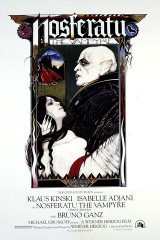
I’ll just start with the Werner Herzog’s Nosferatu. That’s one of my top fives, primarily because I love the Dracula story, of course. And I’m a huge fan of the 1922 [F.W.] Murnau film and I love that Herzog took the time to go to the actual locations where the original was shot. It’s just so simple and it is such a slow, deliberate mood throughout the film that borders on taking too much time — to the point where it’s almost a meditative state as a viewer that you get into.
And that’s not even counting Klaus Kinski‘s portrayal of the vampire which, to me, rivals the [Max] Schreck 1922 portrayal. But I’m such a Kinski fan, and knowing — having insight as to how out of his mind he was in real life — portraying the vampire really lends a lot of layers to viewing it. It’s one of those few cases in which knowing the actor that portrays the role actually creates more depth in the role itself. Where normally you would want to avoid that kind of influence, in this case it really works. Because Klaus Kinski’s so unpredictable as a human being. I would imagine, based on what I’ve heard, much like Max Schreck was in 1922, it’s really a lot of interesting parallel there. For a color adaptation, it’s almost camp, in a way, but… it hasn’t crossed that line — but it almost is. I think the portrayal of Jonathan, and frankly, the girl in it [Isabelle Adjani as Lucy Harker] is probably one of the most beautiful women I’ve ever seen in my life. If you haven’t seen it in a while, revisit it… she’s just insane.
RT: Do you think that that’s probably the best vampire movie?
Yeah, I mean — that’s the weird thing is that if this was five favorite horror films, I could narrow it down a little bit, but because that genre’s so important to me. but I don’t know that I can really put any of them in top five, with the exception of maybe The Shining, which is just a whole Kubrick section on its own — we could go down that road [laughing]. But for me — I think for my case, yeah, it’s probably my personal favorite vampire movie. I prefer the vampire the way it was written, which was a seductive character that wasn’t necessarily what they’ve evolved into. I mean, I guess they’re all seductive, but they don’t turn into into maniacs, you know what I mean? They’re very deliberate and very manipulative, and it was just a better paced tempo with these original films. Don’t get me wrong, have you seen the 1922 version with Type O Negative doing the music? There’s a bunch of different people who’ve contributed soundtracks to it. It’s pretty amazing.
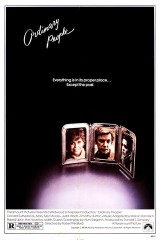
This one’s going to make you — well, I don’t know what you’re going to say to this, but Ordinary People, the Robert Redford film with Timothy Hutton, and Mary Tyler Moore, Donald Sutherland, [has] got to be one of the most emotional films for me, just seeing the middle upper class being stripped of the veneer and seeing the dysfunction within. That film really captures that more than any other, I think, and certainly of that time, it was such a dangerous statement for Robert Redford to be making in a film like that. Every time I watch that film — and I must have seen it over 100 times — I weep.
And Mary Tyler Moore’s performance in that film, I’m telling you, man, growing up in LA, I knew women like her… That was my friends’ mothers, without a doubt. It’s so simple and it’s just beautiful story telling. Judd Hirsch as the therapist and the relationship he creates with Timothy Hutton in that film is pretty special. I feel that if that film doesn’t touch you on some level, that you’re not human. Looking back at it now, it may seem like a very after-school-special choice, but if you really visit that film again, it holds up, man. It’s pretty compelling. You got to see that, man, on a Sunday when it’s a little rainy out there. I don’t know if you have a boyfriend, or a girlfriend, but whoever that is, sit with them, put that on. I’m telling you, dude. It’s like… How do I put it? It’s like The Notebook for our generation, or my generation, you know?
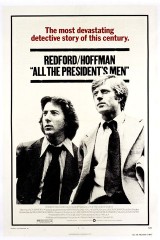
In the same [kin] as Ordinary People, I have to throw All the President’s Men in there, which is a completely different film for Redford to do, but probably one of the greatest journalism films of all time. There are so many elements to that film that are unique to it. The relationship between [Bob] Woodward and [Carl] Bernstein, the way those are portrayed, and then just the whole mystery of the Watergate being spilled out for us. When that happened, I was… I don’t remember, I must have been three or four, five. Those were the years — that was the first time I can remember in my lifetime of something going on politically, and so I actually have memory of that time. And I don’t remember what it was, but I remember the words “Watergate” meaning something. Meaning something big, even though I didn’t understand what they were. Just for that film to be so dialogue heavy, and so all about performance, and the written word, it is one of the most on-the-edge-of-your-seat thrillers that I can think of that is pretty powerful… It’s the most riveting film about people who sit down and type, you know what I mean? You can imagine, it’s pretty intense.
RT: There’s one out with Cate Blanchett now.
Yeah, that’s the movie [about Dan Rather], Truth. I haven’t seen that yet. What was the scandal in Truth again? It was about criticizing the president’s military service report. Nobody cares anymore. That’s the thing. That’s the difference is that — I don’t know why, but that is just so lightweight compared to the Nixon White House [laughing] — trying to break into the Democratic headquarters. Especially, the craziest part about the Watergate thing is that Nixon’s going to win by a landslide… or did, in fact, and that was just all paranoia. There was absolutely no reason to do any of that [laughing]. He just f—ing, like, won by a landslide. Moving along.
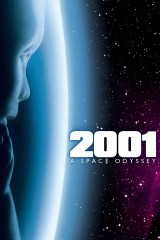
I kind of briefly threw The Shining out there, so that gets its own due, which means I can fall back on 2001, I suppose? I think that film speaks for itself, if I could explain that film to you, then I’d be… I don’t know what I’d be, one in ten who could explain it to you, but there was a followup called 2010 with Roy Scheider, which wasn’t a great film, but if it did anything, it helped explain 2001 a little bit, but 2001… I remember my father took me to see that in the theater, and that was so awe inspiring, and just to see where the imagination and creativity could go on screen as an 11-year-old kid, or however old I was. And to have seen that film over and over and over again and ask new questions every time I do, it’s been a pretty profound staple in my house for years.
Then you get into all the conspiracy stuff. You attach the lunar landing — Kubrick shot the lunar landing stuff in it, and the rear screen projection that was used in the space scenes and in the ape scenes in the beginning, and how conspiracy theorists surmise that that’s what he used to shoot the moon landing. Did you hear all that? The theory is that NASA got a hold of the footage from 2001, saw it, and got Stanley Kubrick to shoot all the moon landing stuff in his studio and broadcast it across the country. Now, they’re not saying that we didn’t go to the moon, they’re saying that what the people in America saw was shot in a studio, because at that time we didn’t want to broadcast to the world what we may or may not have found on the moon — which actually makes more sense then it just being… It’s not, “We didn’t go.” We went. But we didn’t want the Russians to see, or we didn’t want Japan to see, or China to see what we’re discovering, you know? In case there’s anything there, or anything that we could weaponize, so Kubrick shot all this stuff in a sound stage, and that was the agreement.
That’s why NASA gave Kubrick a super, super special space lens that he used for Barry Lyndon, because Barry Lyndon wasn’t shot with any lights. It was all natural light… candles, or sunlight, or whatever, so he used the lens, and that’s what allowed the light to get in for the film process, but there’s so many layers to the Kubrick stuff and I just, as a conspiracy theory fan, I like to have that in the back of my brain while I’m watching those films.
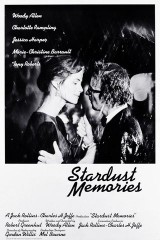
Alright, my next one on my list is Stardust Memories, Woody Allen. It’s really amazing, and it didn’t do very well at the time. It wasn’t a huge film for him, but it’s loosely autobiographical and arguably super self-indulgent. I f—ing love it and there’s just something about the cage of celebrity that he put together in this film which is pretty on the money. To a degree, I identify with the character in the film. I feel like it’s a really great blend of story-telling and film-making and avant-garde, self-indulgent artsy-ness — without being too far in that direction. And it’s conscious of its own attempts at being incredibly avant-garde and almost pokes fun of itself for that. To me, it’s one of my favorite films of his, and he’s one of my favorite filmmakers, period. That one … It’s f—ing good.
RT: Yeah, that’s not one that people talk about very much.
No, no. Well, there was some years where he went from … I think Annie Hall was ’77. Wasn’t it? And then he went into this direction that was really… He just made some decisions that were… Like, there’s a line in this film, where he’s at a film convention of his own films and one of his fans says to him, “I’m a fan of your films, particularly your early, funny ones.” Where he’s talking about … You know what I mean? Where he’s conscious of the fan base turning on him already in the film. It’s fucking great. Yeah, that’s got to be one of my top five. I’m more of a film nerd than a music nerd for sure.
RT: A lot of the best musicians are, I think. It inspires the music, right? I mean, doesn’t it inspire you to write?
Exactly, for sure. I don’t really go to shows, and I don’t go see bands, and I don’t really buy a ton of music, but I’ll see everything.
Kerr Lordygan for Rotten Tomatoes: Do you want to talk about Mourning Son? I know it’s probably hard to talk about.
Navarro: Basically, me and my partner, Todd [Newman], we worked on it every step of the way. This film couldn’t be more DIY independent filmmaking because we just basically made it ourselves. We were talking about making a film. We were talking about what it would be like to put a documentary together, because we’re both such huge fans of film. And we just got in the car one day with a video camera and went and made one. That was literally how it happened. We funded and shot everything ourselves, did audio ourselves, did the film ourselves, booked everything ourselves, found everybody ourselves, did the interviews… Everything down the line was all by ourselves until we finally hired on an editor who helped us make sense of everything we had, but even then — we’re in the editing room the entire time. There was no other project I’ve ever been a part of that has been that hands-on from beginning to end. We just wanted to do it ourselves. It’s certainly — a story of this nature, which is — it goes over my mom’s murder and dealing…
RT: Yeah, I didn’t know. I saw the trailer and I had no idea that you went through that.
Yeah, yeah.
RT: What an amazing thing that you were able to put it out there. Was it cathartic? Was it helpful, or was it torturous?
You know, I think maybe at times a little bit of all of that. Yeah, it’s super hard to revisit a lot of that stuff. But I mean, the odd thing was that — how can I put it? It’s really an experience like no other. I’ve never worked on a documentary film before, I’ve never worked really with any feature length film before in my life, so there was a lot to juggle in terms of emotionally and technically — and just a sheer filmmaking sense, a lot to navigate through, and make sense of so, yeah, there was some catharsis involved.
But I think, more than anything, as we were telling the story, and as we were putting it together — because we initially didn’t really have any idea what we were going to do with this — is this going to be a 15 minute film that we put out on YouTube?… We didn’t know what it was going to be. And it just evolved because part of the thing that we learned about documentary filmmaking is that as you put the film together, it kind of decides where it wants to go from there. Then it just decided it wanted to be this feature length thing, and I think one of the things we realized as we were going is that it had the potential to help trauma survivors and victims of crime in a way that no other film has. And in terms of pointing out that there’s no right way to do this, and it’s probably never, ever going to be totally okay. You’re just going to have to get better, and things are tough. I think it speaks on a real level to people who have been through something like that. And buzz words like “closure” you got to throw that out the window right away, because there’s never going to be a day that there’s closure. I think what happens is that, in today’s “touchy-feely” climate, people end up feeling bad because they don’t feel closure, and then they feel worse.
RT: Yeah, like any time someone says they need to “just deal” with something, or you need to “work through it” — what does that even mean? I don’t even know what that means, to work through something.
It would imply that there’s a day that it’s all better. No, what happens is you learn to cope, and you learn that there’s more to live for, and you find other things that are bringing you joy. But this film, — you know, I go into drug addiction; I go into all sorts of ways of either avoiding, or dealing, or compounding, or however — whatever I chose to do. And certainly being a public figure while doing all that was challenging.
RT: Was it rewarding to have fame at your fingertips while it was happening, or was it more of a distraction?
I don’t have any other frame of reference, so I don’t really know. You know what I mean? All I know is that there were a lot of things that I may have not experienced as much as I could have, because my head was somewhere else. But you learn, you know?
Through the process of making this thing we realized that we weren’t just speaking to ourselves, and we weren’t just speaking to the murder junkies that watch Investigation Discovery all day long — although I’m one of them. We were hopefully speaking to a lot of people, and just maybe people who have dealt with loss — it doesn’t have to be that traumatic, you know. Just showing that there’s an up side, but even in my own personal way, my up side is very particular. I’m not suggesting anyone do anything that I did or didn’t do. It just happened to be my journey.
Mourning Son is now available on VOD, Cable On-Demand, and iTunes.